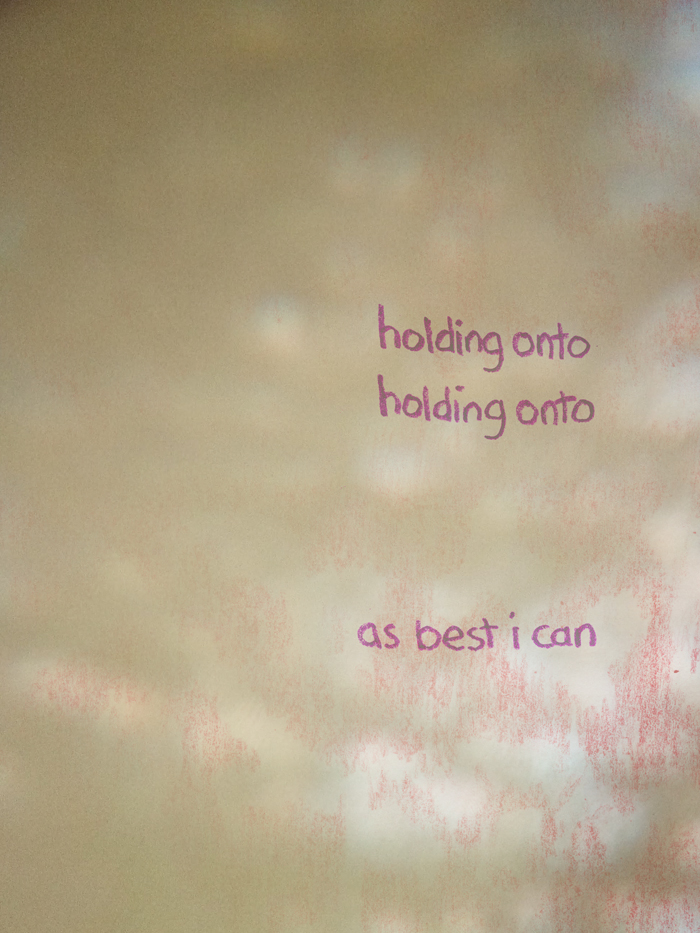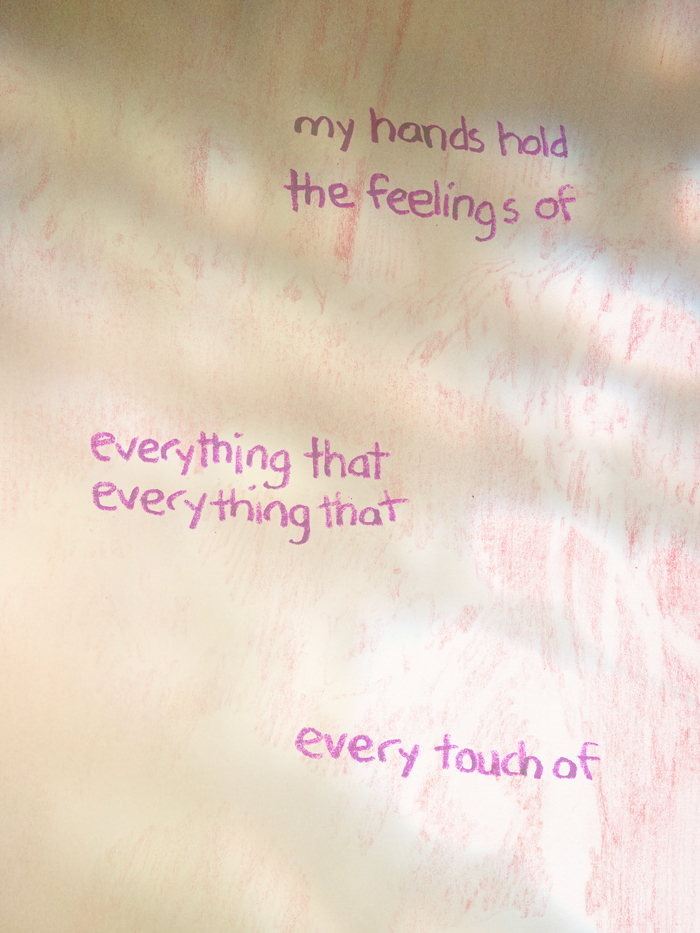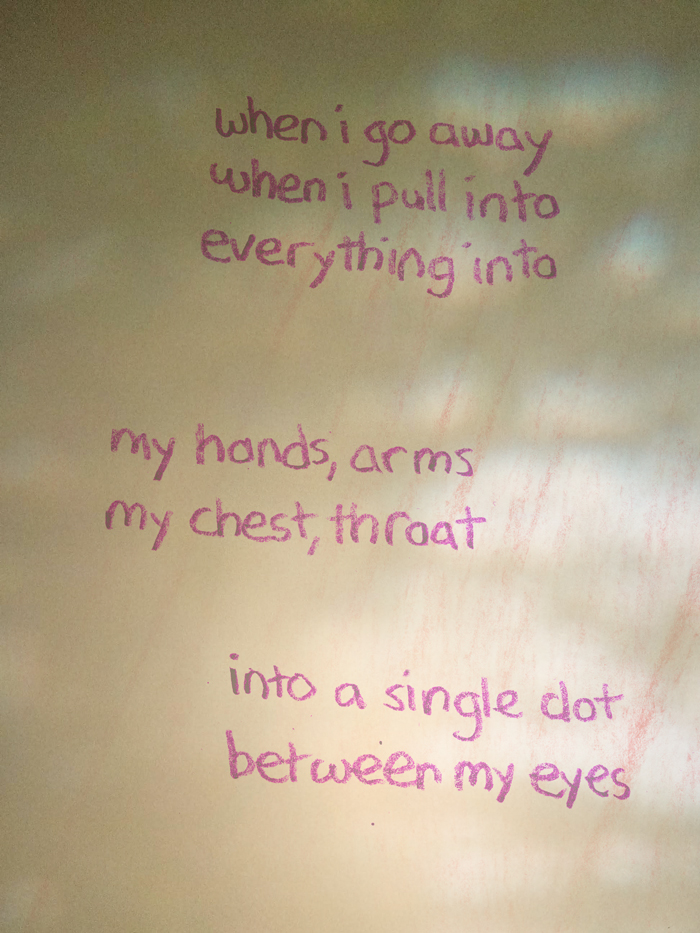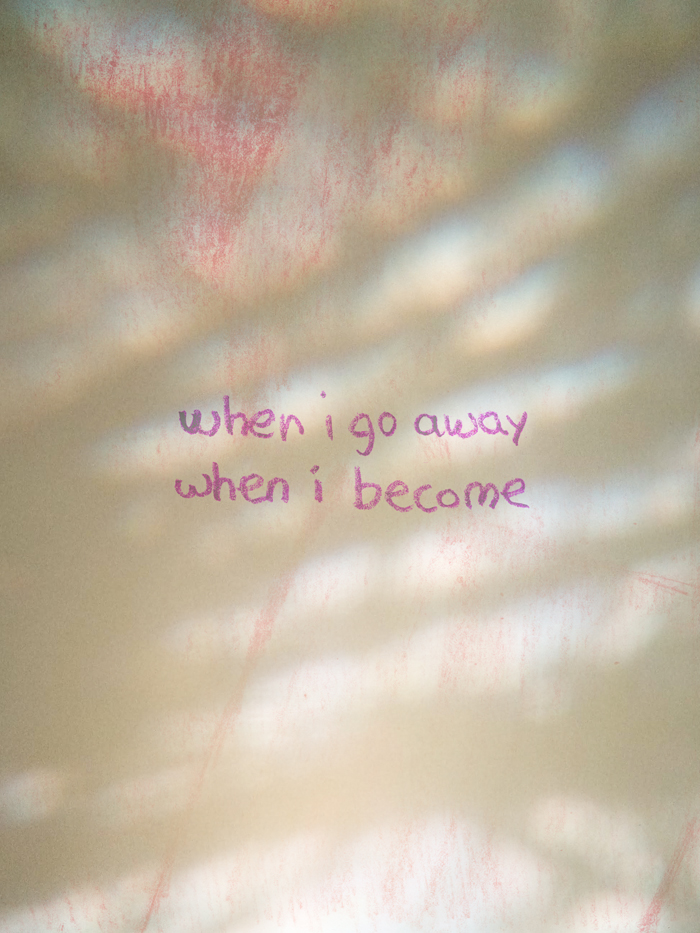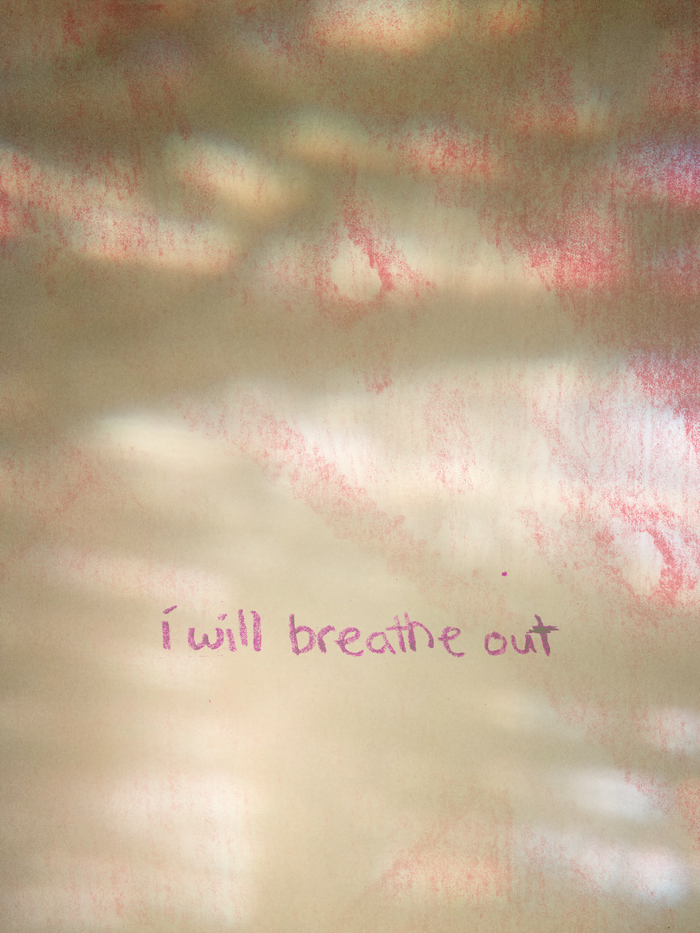The Circuit
Raj had few standards and was therefore rarely out of a
job, or out of love. When he lost his position as a dental hygienist he went
straight to the morgue. He had experience digging into people’s rotting mouths;
he figured dead bodies would be a cinch.
He was not entirely wrong.
On his first day, the morgue manager, Chita, showed him how
to identify and set aside the up-cyclers—the horizontal inheritances that were
useful to keep. The gold teeth, the undamaged bullets, the hair ties, and so
on. Chita had locks past her shoulders, and she liked to decorate them with the
hair ties of the dead.
After that, it was a simple matter to drain the corpses.
The muck went straight down a hole. A switch of the needles and tubes, then
clean, astringent preservatives replaced the bodies’ inner funk, plumping them
back out and smoothing their deathly creases.
The only tricky bit was the insertion of the tracking
device, but even there Raj caught on right away.
“You’re a natural,” said Chita, as Raj made a perfect, parallel
incision between two ribs.
Raj forced the scalpel into the tough muscle of the heart
and the tracker slipped in. It was a slim chip, about the size of a thumbnail.
They checked the monitor to make sure it was working. Then they sewed the skin
back up.
“So many bodies,” Chita liked to say, “but never the right
one.”
The sun had cracked along the horizon. It was time to go
home.
The morgue was only open at night. In his interview, Chita
had told Raj this was a precaution against accidentally embalming a vampire,
but mostly it was because of Bill, Chita’s plus-one. A few years ago, when Bill
was working the night shift, Chita had switched the morgue to nights so they
could see each other more. When Bill got laid off, Chita had kept the night
hours so they could see each other less.
“You not been to bed yet?” Chita asked Bill when she got
home.
The early sun blazed in the windows. Bill sat with his
knees spread in front of the big screen, empty crisp packets at his feet,
headphones on. Chita knew better than to interrupt a game but he might at least
make eye contact, let her know he had seen her come in. The trash can was
overflowing with take-out containers and stained paper towels.
She was too wired to sleep. She had never done well with
the sun. You told yourself it was up there in the sky to help you see but
really it was there to blind you, to block out everything that was not itself,
to hide everything that was beyond.
She climbed onto the fire escape and threaded a new line of
lights through the rail. These ones were lemon-colored, with glitter. When she
turned them on, they looked like a chain of gemstones. She heated a lavender
pillow in the microwave and plonked it over her eyes. The bed smelled sour. She
took two sleeping pills.
When she woke up, Bill was still at his game. The coffee
press had broken weeks ago and she kept forgetting to replace it, so she made
do with instant—black, because the milk had spoiled.
“I’m going for a walk, babe.”
Bill did not react. Maybe he had not heard. Chita planted a
kiss on the back of his neck and left.
News vans were humming outside the park entrance. Chita
bought a warm pretzel. She had never seen the place so crowded, especially on a
weekday. A school day.
“We will not give up until our demands are met,” blared a
loudspeaker, and Chita remembered: the children’s strike. So it had finally
reached their city.
She watched the children muddling themselves into formation
around the piddly municipal pond. Some were grinning and some were serious.
They held hands tightly, sealing their ring. The news agencies took interviews.
Was it more inspiring, Chita wondered, or terrifying, to know you might have a
whole lot of life left ahead of you?
When Raj got home that morning, his wife was waiting for
him. She had baked cinnamon bread.
“For when you wake up, honey, not for now. You shouldn’t
eat so close to bedtime.”
“But bedtime is breakfast time.” Raj cut himself a thick
slice. “Why aren’t you at work?”
“I’m just running over now. Would you let the plumber in?”
“Sure. Hey, where’s my kiss goodbye?”
But the wife had already left. Soundlessly. She had a way
of rotating the doorknob so the door closed without a click. Raj did not know
why, but this unnerved him. Maybe one day he would mention it to her.
It was afternoon when the doorbell woke him. The sun was
having a last gasp before starting to set. Raj munched cinnamon bread and
rootled in the fridge while the plumber clanged the pipes in the basement. It
was time to put a lunch bag together and get ready for work.
“Hey, buddy.” The plumber poked his head into the kitchen.
“I think we’re good to go. You wanna come down and check? Make sure it’s the
way you want it?”
Raj descended slowly. The basement steps sagged and popped
beneath his weight.
They called it a basement but it was really a cellar, a
hole dug into the earth and left just as it was, open and raw. The floor was
mud and stone. Pipes ran along the ceiling. When trains went by, dirt dribbled
down the walls. Raj thought of it as a dank clot of trapped energy that drained
the vitality from the rest of the house.
The plumber gestured for Raj to stand on an “X” marked out
on the floor with electrical tape.
“I’ve numbered them so you know which way to strike.” He
held up a toy-sized hammer, silver-headed, the sort of adult plaything you use
for making jewelry and miniature clocks. “You can hit as hard or as soft as you
want, it won’t change none. So long as you follow the numbers it works. Ready?
Okay, here we go.”
Raj crossed his arms.
The plumber was tall enough—or the ceiling was low
enough—that he could reach the pipes without a ladder. He struck a fat pipe,
quickly crossed the room and struck a thin pipe, walked two steps to the left
and struck a rusty iron pipe, and so on. Each strike started up a vibration
that the next strike picked up and carried before passing on to the next.
Thirty-six strikes in all. The plumber did it three times without pausing, to
amplify the effect. One hundred and eight strikes. The basement was a vortex of
sound.
“Does that work for you, buddy? This what you wanted?”
Raj wiped the tears from his cheeks. “Yes. Do it again.”
The season died a little more but not many people joined
it. Work was boring. Chita and Raj sprawled in the morgue office, waiting for
death. Raj scrolled through his phone. Chita made maps. Her software regularly
pinged the trackers so she knew where they were and if they were active. She
showed Raj the constellations of bodies they had embalmed so far.
“Looks like a flamingo. Wait, why’s there a corpse way out
there? The beak.” He pointed. “There’s no graveyard there.”
“Some rich guy buried his mother under an apple tree.”
“Is that legal?”
Chita swore and shut the computer down.
“Everything okay? We’re not missing any bodies, are we?”
Raj liked everything to be okay. He got nervous when things
were not okay. That afternoon he had pretended not to know that the wife was
cheating on him, just so as to keep things okay with her, and with himself. He
had booked them on a river cruise to celebrate his new job and the tickets were
non-refundable.
“We’re missing some bodies but they didn’t get lost. They
just haven’t died yet.”
“I’m not getting you. I thought the trackers were so we
could watch out for grave robbers.”
“Did I say grave robbers?”
“Yes.”
“I might have lied about that.”
Raj waited.
“I can explain.”
Chita reached into the neck of her sweatshirt and pulled
out a long beaded chain.
“It’s like this, like my necklace. Let’s say we changed a
bead of it. Now, maybe you think no one would notice; that a single bead
doesn’t matter. But one bead, more or less, would change everything. One bead,
more or less, and the weight of the chain would be different, the length would
be different, the color scheme would be different. I would feel heavier or
lighter and maybe, because of that, I would feel sadder or happier and that
would make me treat people better or worse. But here’s the thing, no one knows
how many beads a necklace should have. No one knows the right placement of
colors and the right kinds of beads, and anyway the perfect necklace for me is
not the perfect necklace for you, and the perfect necklace for me today may not
be the perfect necklace for me tomorrow.”
“I’m still not getting you.”
“What I’m trying to say is, we’ve no idea how to arrange
things so they’re perfect. But perfection is possible. And if you can manage
it, if you can channel the energy around you in a perfect loop for just an
instant, then you can sublimate.”
“Sublimate what?”
“I’m still figuring that part out.” She stuffed the
necklace back into her sweatshirt. “But I know there has to be a chain. You
have to close the circuit. Like when you have a string of lights and one bulb
goes out, the whole chain goes dark, and the only way to fix it is to find the
busted bulb. You replace that bulb and the whole string lights up again.”
The first time Chita made a ring, it was an accident.
Literally. A charter plane crossing the mountains went down in a blizzard and
crushed its seven passengers—a famous dance troupe—into the ice. Come spring,
they were found in a single knot.
The rescue team dropped the bodies at the morgue and Chita
lined them up on parallel slabs. They were a mess. Chunks of flesh had been
torn away from every corpse and frozen again to all the others, so instead of
seven bodies Chita had seven body-quilts. Even their organs and bones were
jumbled. Forensics identified the former dancers, more or less, using dental
records, but they had to pin the toe tags into soft matter—a shoulder, an
eye—because the bodies had no toes.
Chita took a break halfway through the embalming to make
herself a hot drink. Filled with half-frozen bodies, the morgue felt even
colder than usual. She was rinsing out a coffee pot when a classical piece came
on the radio. There was a rustle behind her. She turned and saw that the pins,
which had been stuck in at haphazard angles, were now pointing straight up. The
ID tags were extended in the same direction and they were fluttering.
Chita set the coffee pot down. If she were wise, she knew,
she would go home and open a bottle of whiskey.
Instead, she passed along the slabs, waving her arms in
search of a breeze or a string or a ghost, but all was still. The morgue had no
drafts and the doors were shut. The song ended and the radio went to commercial
break. The tags dropped. The pins slumped.
Chita knew she had discovered something important but
before she could figure out how to make use of it, the undertakers took the
bodies. The families held separate funerals. The corpses were buried in
different places. Two went abroad and one was cremated. The dance troupe’s
link, their essential and eternal connection, was broken. Their vision died and
the world’s quantity of joy, potential and actual, decreased.
When a man went into a rage and murdered three girls the
following month, Chita knew—no matter how much Bill laughed at her—that last
year’s blizzard was to blame. A single cremation had increased the devil ratio.
One icy morning, a family crashed their car on the way to
church. Everyone died except Tipper, the six-year-old, and she was in hospital
in critical condition.
“A magical number and age,” said Chita to Raj. “That’s
probably why she didn’t die. We might need her. Let’s visit the death bed.”
Tipper was tiny. Her arms were no wider than the tube down
her throat. The doctors had stapled her together but she had yet to wake up.
“She’ll never last,” said Chita with confidence.
“Poor girl,” said Raj. “Everyone who loved her has died.”
If only, Chita would later think, he had been right. It
would have made things so much simpler.
But while they were looking down at Tipper’s cocoon,
listening to the machines beep and smelling bleach and latex because there were
no flowers to smell because no one had brought any because everyone—they
assumed—who cared about Tipper was dead, a woman with a cotton ball for hair
strode through the door. She set a take-out cup on the bedside table and
plunked herself into Tipper’s visiting chair. She pulled out a ball of
knitting.
“Who’re you?” asked Chita.
The woman paused to count her stitches. “Who’s asking?”
“A friend of the family.”
“Friend, my foot. I never seen you before.” She hit the
nurses’ call bell. “This child has been through enough, you go on and be
perverts someplace else.”
The doorway darkened with incoming nurses. Chita and Raj
dropped their business cards and left.
“Why are you worried about this?” Raj asked as he drilled
holes into an old white man stained with greenish tattoos. “If she dies,
they’ll send her here, and we’ll add her to the circuit. If she doesn’t die,
then it wasn’t meant to be, and we move on.”
Chita yanked at her hair. “You’re so naive.” She was seated
cross-legged on one of the slabs, drinking a latte and not even pretending to
help Raj with the embalming. “Who do you think is keeping the world organized,
huh? The fairies or the undertakers? We have responsibilities.”
Raj put the drill down. “Are you saying we should kill
her?”
“I’m saying there are bigger issues at stake. She’s just
one person, and not even a person but a kid. She might grow up to be a
psychopath, or even a banker. This might be her one and only chance to make a
positive contribution to the world.”
“So you’re saying we should kill her.”
“I’m saying we should convince her to contribute.”
The end of their shift coincided with the start of the
hospital’s visiting hours. The old woman was already in Tipper’s room when they
arrived. Chita cursed herself for having agreed to stop on the way for
breakfast burritos.
“Well, if it isn’t the visitors that nobody asked for.” The
woman purled.
“We just want to see how she’s doing.”
“Nurse said you’re a couple of undertakers.”
“Not in our free time.”
“If you waiting for
my girl to pass on, you got a long wait.” Her knitting needles clacked.
“She’s not ‘your’ girl though, is she? I bet you’d never
even met her before.”
“Don’t matter. Her mother was my cousin’s closest friend
and that makes her my girl now, I’m the only one left.”
“Tipper,” Chita
leaned over the bed, her hands on the place where the girl’s legs should have
been. “Follow the light.”
“Incredible,” said Raj, while they waited to be seen in the
emergency room. “Did you know a knitting needle could be so sharp? It almost
went right through your arm.”
“We might have to kill her outright.” Chita’s skin was
shiny with sweat. “The hospital’s not going to let me back into that room.
It’ll have to be you.”
“Me?”
“And take the old woman out while you’re at it, eliminate
any possible loose ends. We can’t have loose ends. One loose end and the entire
circuit is compromised.”
Raj went home in a thoughtful mood. He liked Chita. He
respected her. He would like to be helpful to her. But he would also like to
not go to prison.
After the wife had gone to work, he went down to the
basement and hammered the pipes according to their numbers. Round and round,
they vibrated and sang. He stood on the X and felt the vibrations echoing in
his chest. He would have liked to have called a friend and talked it through,
but there was no one to call.
He drove to the hospital. The old woman had fallen asleep
in the visitor’s chair. The sky behind the window was flat, unbrushed, and
grey; an urban color unbound by season and time.
Tipper’s eyes had sunk into their sockets but the nurse
said she was past the critical point; that as of that morning she was, for the
first time, more likely to survive than she was to die—which made no sense,
because the only thing we are all most likely to do is die.
Is she lying, wondered Raj, or does she know what Chita
knows?
He took note of entry points and exit points. When the old
woman woke up, he invited her to a cafeteria lunch.
Bill was watching video clips on the internet when Chita
got home.
“Check this out.”
He pulled her down beside him. Chita wormed herself under
his arm. He was watching a clip of six people having a moderated discussion
about relationships. Are you sabotaging your love? Is there a way to cohabitate
mindfully? The actors debated. The clip ended.
“That was some conversation, right?” Bill shuffled to the
kitchenette.
“What do you think about what they were saying?”
He laughed at her. “We just watched it. I don’t need to
watch it again.”
Chita rifled through the pizza boxes. There was one slice
left. The cheese was a cold, solid block. “Grab me a beer too, will you?”
“Sorry, there’s only one left.”
“Bill.”
“Shouldn’t you be sleeping?”
“Yeah, I’m sleeping.” She dropped the half-eaten slice and
slammed the bedroom door behind her. Freezing rain rattled against the
windowpane. The black-out curtains made her feel like she was in the box, like
she was one of her dead.
“Babe.” She poked her head into the main room. Bill was on
the internet again. More videos. “Hold me, please? Just while I fall asleep.”
“I’m watching something.”
“Ten minutes.”
“Fuckssake.”
She waited for him to look over at her. He did not.
“If you’re still awake when this is over, I’ll come in,” he
relented. “But I can’t do ten minutes. I’ve got stuff to do. Maybe five.” He
bit into the pizza she had left behind.
Chita got into bed and stared wide-eyed at the dark. Her
legs were restless. The bedsheets were messy and loose; like lying on top of a
pug. Slack skin, rough and stinky, puddled over her arms. She sprang to her
feet and tucked the fitted sheet in well and tight. She brushed her teeth. She
massaged her temples. It had been twenty minutes.
“Is your show done yet?” she called into the living room.
“Bill? I still can’t sleep.”
“Fuck me. Can’t you cuddle a pillow?”
Chita pulled on a pair of jeans. She threw the pillows onto
the fire escape, into the icy rain, and lifted Bill’s car keys.
The nurses did not see her slip by. Chita got into the bed
and took Tipper in her arms. She kissed the girl on her forehead, her nose, her
wasted cheeks, and her ashy hands. She held her and sang a lullaby. Then she
affixed a strip of clear packing tape to the girl’s mouth and another to her
nostrils. She switched the heartbeat sensor from Tipper’s finger to her own.
She held the girl for ten minutes, fifteen minutes, twenty. She held her with
love.
She was punching the elevator call button when the monitor
alarm went off. The nurses rushed to Tipper’s room. The elevator dinged its
arrival.
Chita did not feel triumphant. It was more the sensation of
a piece fitting into place; of the wind passing more quickly, more efficiently,
over a smoothened world.
She threw the packing tape into the municipal bin in the
park. It had stopped raining but the sky was still grey. The children were
wearing raincoats and wooly hats and shivering. Their ring around the pond was
wavering but they still kept their strike. Chita ate a pretzel and took deep,
cold breaths.
That night was busy. There had been a spate of influenza
deaths. Chita and Raj took their lunch on the roof to get the stink of the
chemicals out of their noses. The icy rain had turned to snow. They watched the
flakes turn and tumble through the lamplight, glittering like corpse teeth.
“Poison?” asked Chita, as she rolled a joint.
“Choking.”
“Well played. Old women are famously choke-able.”
“They haven’t brought us the bodies yet. Should we be
worried?”
“Nah. They’ll keep them in the hospital freezer for a
couple of days to do the autopsy. It’s standard when the cause of death is
questionable.”
Raj almost dropped his sandwich. “Questionable but
explainable, right? Like, natural death explainable?”
Chita took a hit and passed him the joint, the first puff
tight in her lungs. “Relax,” she croaked. “Take your medicine.”
Raj obeyed. His eyes watered. “Do you love anyone, Chita?”
“That’s a weird question. Where’d that come from?”
“Do you?”
He squinted through the snow at her. A fleck of marijuana
was stuck to his lower lip. She reached for the joint but he waved her hand
away. She watched, eyes hungry, as he took another drag for himself.
“I love in the intransitive verb way,” she said. “Like,
I-love-period, I-love-full-stop.” He passed her the joint and she took the last
pull, killing it. “If you ask me,” she continued, expelling the smoke with a
cough, “that’s the better way to do it. Just loving, without needing a love
object for that love.”
“So, no.”
“No.”
“Don’t you have a boyfriend?”
“So?”
“So, you love him.”
“No, I live with
him. I blame him for shit and he forgives me for shit and that way we take care
of our mutual insecurities and we can get on with things. Life works better
when you have a partner. I think love—like the way you’re talking about love,
kissy-face love—would just mess our lives up.”
“I don’t love the
wife either.”
“Of course you don’t. You’re not discriminating enough.
Kissy-face love means you love one person, just one, and everyone else can go
fuck themselves. You’re too nice a guy to be in love.”
“Thanks, I think.”
“I’ll take that apple if you’re not going to eat it.”
“Trade you for your candy bar.”
“Deal.”
Three days later, the bodies arrived. The old woman and
Tipper. Chita was so excited she broke out a new bone saw. Raj insisted Chita
be the one to place the trackers.
“Are you ready?”
“I’m ready.”
“Should we turn out the lights?”
“Yes. Wait, no.”
“Yes or no?”
“I don’t know.”
“What do you think will happen?”
“I have no idea. Do you?”
“No idea. It could be the end of the world.”
“Or the beginning of a better world.”
“This world’s going to suck until all the people are gone.”
“So maybe this will be the end of us.”
“And the beginning of perfection.”
“This is the god moment.”
“It’s the god moment.”
They held their breath. Carefully, moving both hands at
once, Chita dropped a tracker into Tipper and a tracker into the old woman. Right
in their chest cavities.
Nothing happened.
“Maybe we need to sew them up first.”
They sewed the skin neatly. Still nothing happened.
“Maybe we need to bury them.”
They released them for burial. One week later, when the
bodies were in the ground, still nothing had happened.
Chita and Raj sat on the roof of the morgue with bowls of
ramen. They were too upset to work. The bodies were piling up downstairs.
“The link is incomplete,” said Chita. “That’s the only
explanation. We have to keep looking.”
“Looking where? And how? Did you ever consider you might
need to include every single person in the whole entire world, both the ones
who have died and the ones who are living? We’re wasting our time. I should go
back to cleaning teeth.”
“Every circuit has sub-circuits. We are looking for a
sub-sub-sub-sub-sub-circuit that includes all the people who were ever
connected in some specific and important way during their most recent
lifetime.”
“It’s impossible.”
“No, it’s not. Come on, look around you.”
Chita swept her arms out and turned in a circle, her head
thrown back. There had been more snow. Drifts were climbing up the walls and
swallowing the lamp posts, joint by joint.
“Hey, watch out. You’re too close to the edge.”
“This town is tiny,” cried Chita. “It’s static. People
don’t leave it, they never leave. They sit here and they sit here. Everyone who
was born in this town is buried here, or will be soon.”
“That’s not true, people leave. I’m going on a cruise, for
example. The wife and I are going on a cruise.”
“You’ve been saying that for months.”
“Well, I’ve had to push the date back but that doesn’t mean
we’re not going. The tickets are paid for. If we don’t go this year, we’ll go
next.”
Chita brushed the snow from the ledge and leaned over, her
tongue out to catch the drifting flakes.
“Before you started up here, I was the only one on staff.
Did you know that? That means every tracker has either been placed by me, or by
you with my supervision.”
“Please get away from the edge, you’re making me nervous.”
She held her hands in prayer position before her chest.
“Raj, I am the missing link.”
“No, you’re not.”
“You have to promise you’ll add me to the chain.”
“GET AWAY FROM THE EDGE.”
She jumped head-first.
Raj removed Chita’s hair ties and slipped them into an
envelope. He had thought to give them to Bill as a keepsake but Bill did not
come by to see the body and say goodbye. No one came.
Raj felt regret that Chita had died but he was not sad
about it. This lack of sadness was a huge relief. It meant he had not been
particularly attached to her; he would not have to jump off a building too.
It took a great deal of skillful slicing to place the
tracker in her heart. When Chita had hit the pavement, her ribs had shattered.
Her heart was in pieces. Raj eventually managed to lodge the tracker in one of
the larger heart-chunks. He tested it, located it on the monitor, then stitched
her back together.
He waited. Nothing happened. It was depressing.
Raj called the river cruise company to confirm a berth for
the following week for one person, just one.
He was steaming down the center of the Rhine when they
buried her. There were no mourners, it was just Chita and her box. The ground
was frozen. The gravediggers had to light fires around the grave to thaw it.
Slowly, with numb fingers, they lowered Chita in.
The moment the earth was re-sealed, Raj knew.
The sun wavered. He saw it. He gripped the ship rail and
watched the sky dim. The sun was still there, he could see it, but now the moon
shone too, and the stars.
Then, he felt it—he felt the circuit connect. He heard the
snap as it came together.
A snap and a flash, then every light in every heart in
every creature in every place lit up at the very same moment.
“We did it,” he marveled.
The river was rising. The cruise ship heaved.
“Chita, we did it!”
Dara is the author of The Guardian UK’s Confessions of a Humanitarian series. Dara’s work has been nominated for the Pushcart Prize (2018, 2019) and the Best of the Web (2018) and has appeared in the The Southern Humanities Review, The Apple Valley Review, Ruminate, Arcturus, Meridian, The Tishman Review, Typishly, The Manzano Mountain Review, Thought Catalog, Crack the Spine, Points in Case, and elsewhere. Dara lives out of a suitcase that is most often in sub-Saharan Africa. Find Dara on Twitter (@DaraPassano) and through the Word Link Literary Agency.


 BACK TO ISSUE
BACK TO ISSUE




